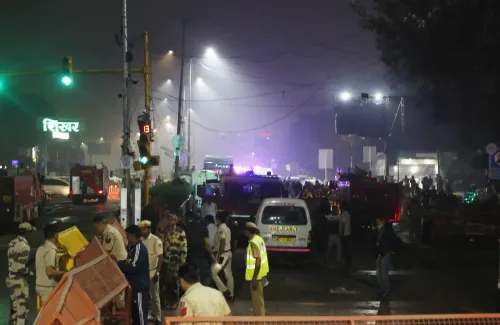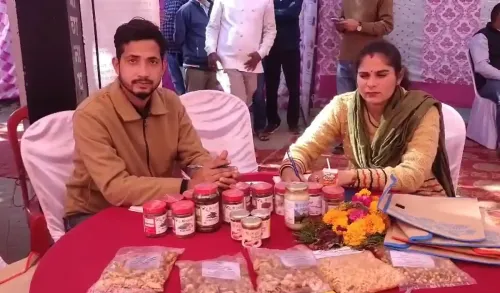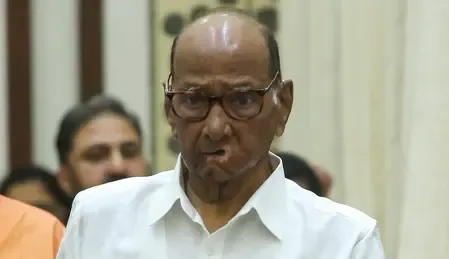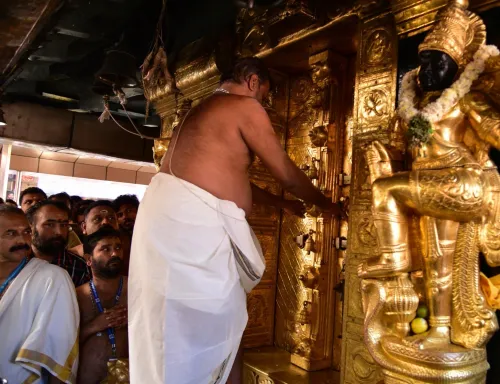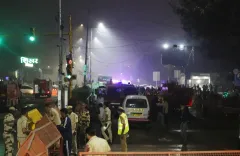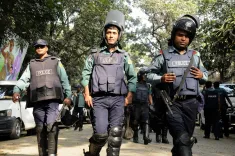Is Kerala’s Civic Polls a Test of Anti-incumbency vs Incumbency Ahead of 2026 Assembly Elections?

Synopsis
Key Takeaways
- Kerala's local body elections are crucial for political dynamics.
- Public sentiment may shift due to recent controversies.
- The ruling Left Democratic Front aims to maintain dominance.
- The UDF and BJP are leveraging anti-incumbency.
- Polls will reflect urban and rural divides in voter sentiment.
Thiruvananthapuram, Nov 10 (NationPress) The forthcoming local body elections in Kerala, scheduled for December 9 and 11, are evolving into a contest between anti-incumbency and incumbency, assessing whether the public's discontent over recent controversies will overshadow the Left government's assertions of welfare-oriented governance.
For the ruling Left Democratic Front (LDF), which governs five of the six corporations and a majority of local bodies, these elections represent an effort to reaffirm its political authority and validate Chief Minister Pinarayi Vijayan's narrative of continuity and social welfare.
The administration is relying on key initiatives in housing, health, and infrastructure to showcase a record of substantial delivery, even amidst economic limitations.
Conversely, both the Congress-led United Democratic Front (UDF) and the Bharatiya Janata Party (BJP) perceive an opportunity to leverage the anti-incumbency wave.
They have centered their campaigns on a series of recent scandals—including the Sabarimala gold theft, accusations of corruption within cooperative institutions, and hospital fatalities tied to administrative failures—depicting the government as exhausted and unresponsive.
The UDF, which has launched its campaign early, aims to recover lost ground following setbacks in the 2020 and 2021 Assembly elections.
With K.S. Sabarinadhan declared as its mayoral candidate for Thiruvananthapuram, the Congress seeks to connect with younger voters while promoting a message of ethical renewal.
The BJP, on the other hand, strives to solidify its modest yet noticeable urban support base, introducing high-profile candidates such as former DGP R. Sreelekha and Asian Games medalist Padmini Thomas, despite facing tensions with its ally Bharath Dharma Jana Sena (BDJS) regarding seat allocations.
Political analysts view the civic elections as a precursor to the 2026 Assembly elections, likely reflecting voter sentiments across both urban and rural areas of the state.
As per the State Election Commission (SEC), voting will occur across 1,199 local entities—including 941 grama panchayats, 152 block panchayats, 14 district panchayats, 86 municipalities, and six corporations—with vote counting set for December 13.
The first phase will encompass Thiruvananthapuram, Kollam, Pathanamthitta, Alappuzha, Kottayam, Idukki, and Ernakulam, while the second phase will cover Thrissur, Palakkad, Malappuram, Kozhikode, Wayanad, Kannur, and Kasaragod.
There are 2.84 crore registered voters, comprising 1.33 crore men, 1.49 crore women, and 271 transgender individuals.
The elections will occur across 23,576 wards through 33,746 polling stations, with 1.8 lakh officials and 70,000 police personnel deployed for security.
Nominations will close on November 21, scrutiny is scheduled for November 22, and withdrawals are set for November 24.
The new councils are anticipated to take office by December 21, coinciding with the conclusion of the current term.

